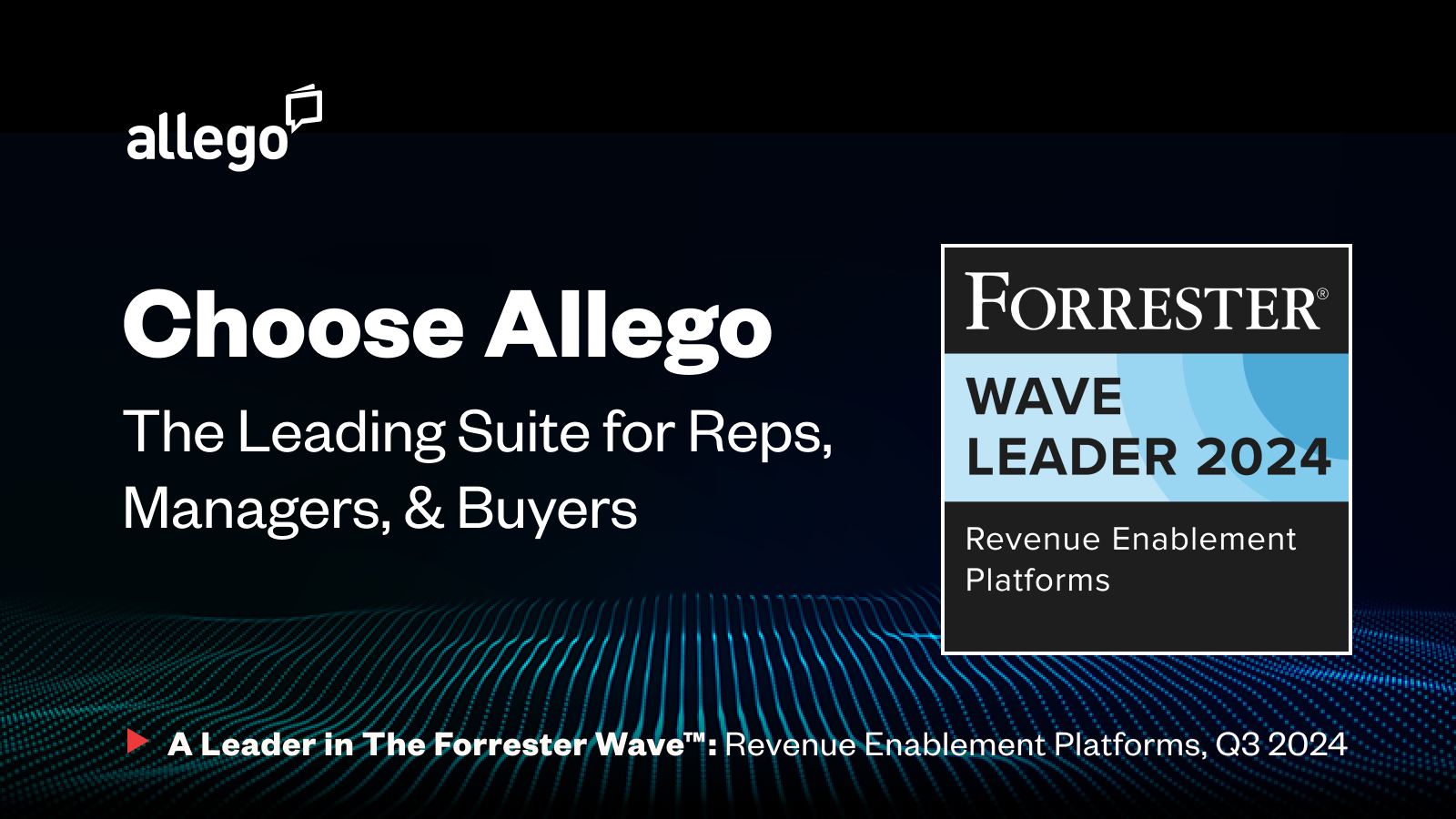Top 10 Questions to Ask Your Sales Enablement Vendor

Picture this: You’re VP of Sales at a large medical device manufacturer with a multinational sales force spread across five continents. You also employ channel sales partners. You need to train and certify thousands of remote sellers, ensure messaging consistency, and improve collaboration among geographically distributed teams, some of whom speak English as a second language.
You’ve relied on a traditional Learning Management System (LMS) and infrequent (and expensive) in-person sessions—but you’re not sure these are effective. There’s no easy way to coach at scale. Your sellers don’t have a way to reinforce what they’ve learned. They can’t find the content they need easily. And you don’t have a way for ‘A’ players to share what works with the middle of the pack.
>> Download your All-in-One Sales Enablement RFP Kit to learn how to create a comprehensive RFP and keep the evaluation process on track.
How to Find the Right Solution
This situation may sound familiar. Even small to midsize companies feel these same pains. As a sales leader, you know you need help, but you don’t know where to start. And this is just the beginning. Your sales enablement needs will continue to grow in the months and years ahead.
It’s time to level up your sales enablement technology solution. The right sales enablement platform will resolve your most pressing pains, and have the key capabilities your team will require in the future.
But with so many competing solutions on the market, how do you know which is the best match for your organization? Choosing the right platform is a challenge. You have so many questions:
- What capabilities do you need?
- What implementation pitfalls do you need to be aware of?
- Who will provide the best customer support and be a proactive long-term partner?
- Which platform will provide the most seamless, user-friendly experience that your reps will actually adopt?
The first step to finding a solution is easier than you think. Create a Request for Proposal (RFP) and send it to qualified vendors. This will allow you to evaluate options and choose the best sales enablement platform for your growing needs.
Top 10 Questions to Ask Your Sales Enablement Vendor
Daily conversations with buyers require sales reps to convey value effectively, recall information about a vast portfolio of products and services, and respond to questions about rapidly changing competitive landscapes on the fly.
Traditional formal learning (classroom training, eLearning courses, and lengthy webinars) represents only about 10% of how sales reps learn to do their jobs. This huge gap between the way learning is typically provided and the way that salespeople learn—whether or not you train them that way—means that your training may not be nearly as effective as you expect.
The way to mitigate this risk is by choosing a sales enablement platform that supports both the formal and informal learning that salespeople need to be successful.
Ensure your sales enablement software vendor meets your needs by asking these ten questions in your RFP:
1. Just-In-Time Learning: Does the platform support sharing best practice videos, content recommendations based on buying stage, and AI-powered microlearning—all accessible at the moment of need?
2. Content Management: Is there a centralized, organized way to distribute resources and materials sellers use every day, so they’re equipped to solve every customers’ challenges?
3. Agile Content: Can users leverage interactive video, field-generated content, and peer-to-peer knowledge sharing that they can access in the flow of work?
4. Peer Collaboration: Does the platform have a mechanism for sales reps to interact and share best practices with one another?
5. Ad Hoc Practice and Coaching: How easily does the platform support ad hoc asynchronous coaching interactions to overcome time and distance barriers? Can this be done primarily on their mobile devices?
6. Customizable Curriculum: Can programs be personalized and tailored to each learner’s needs presenting interactive content, peer-generated videos, video exercise simulations, and knowledge checks and quizzes to reinforce learning?
7. Management Reporting and Enablement: Is there visibility into content use, platform adoption, engagement, and learning progress to empower sales leaders, managers, and coaches?
8. Digital Sales Rooms: Does your platform support buyer engagement and communication through the creation of personalized online deal rooms?
9. Conversation Intelligence: Does the platform use Artificial Intelligence (AI) to record, transcribe, and analyze sales calls and generate recommendations and data-driven insights?
10. Ease of Use: Does the platform have an intuitive design for both training administrators and learners?
Choose the Most Qualified Sales Enablement Vendor
You’ll get the best results (and reach the most qualified vendors) when you send your RFP to a curated list of platform providers. The Gartner Market Guide for Sales Enablement Platforms is an excellent resource that highlights critical sales enablement capabilities required for sales enablement success.
Gartner’s annual report shares how to evaluate key vendors’ technology and recognizes fifteen vendor platforms that provide the components that organizations need for today’s hybrid teams.
Make sure you do as much research as possible on vendors before sending out your RFP. Read online reviews, study analyst research reports, and take the time to compile a vetted list of qualified vendors.
In addition to evaluating vendors on your organization’s requirements, you will also want to include other information in your RFP to give sales enablement vendors a bigger picture and provide context for your use cases.
A well-structured RFP will help you evaluate vendors and cut through the noise of today’s cluttered and changing sales enablement landscape to find the best solution.
Learn More
Download your All-in-One Sales Enablement RFP Kit to learn how to create a comprehensive RFP and keep the evaluation process on track.




